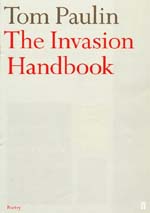Don't the Moon Look Lonesome: A Novel
Reviewed by Tim Walker, Fri., June 9, 2000

Don't the Moon Look Lonesome: A Novel
by Stanley CrouchPantheon, 546 pp., $26.95
Cultural critic Stanley Crouch is a formidably smart man, and his long-awaited first novel is a formidably smart book. In it, we receive mini-primers to Crouch's ideas on topics ranging from the experience of black soldiers in Vietnam, to school reform, to the workings of high-class restaurant kitchens, to the spiritual implications of the work of W. C. Handy. There is a discursus on the architecture and social and technological history of Grand Central Station which relates that New York landmark to various themes from Roman mythology and to the Sistine Chapel. There are cooking lessons and sociology lessons and many, many lessons on jazz, of which Crouch is an eminent critic.
Thankfully, there is also a story, a risky one mostly told with real human sensitivity. The risk comes from Crouch's focus on his white, female protagonist Carla, a jazz singer from South Dakota. Whether Crouch accurately depicts the interior life of a woman, or of a white woman, is up for debate. But he does lay open many of the strains, racial and otherwise, within American culture through the exploration of Carla's long-term relationship with Maxwell, a black Texan who is a top-flight tenor saxophonist. Whether their love will survive the pressures black and white society put on interracial couples is the novel's central question.
There are stretches where the narrative flows wonderfully, but also passages that groan from mishandling. Crouch's verbal riffs sometimes get ahead of his ideas, or simply lack the ideas to go with them. Since the prose is often spot-on, the inconsistency is grating. This is especially true of his characters' dialogue, which can flow out so truly that disbelief may be suspended, but can also become unbelievable and almost hard to read.
Crouch has worked on this book for many years, and he has not left anything out, even to a fault. Sometimes his riffs and lessons go on enough that the reader will wish that a firm but kind editor had given it one more pass-through. Drying out the excess in Crouch's language could make the book a tenth or even a fifth shorter, and it would be all the better for it. Still, this big bruiser of a novel thinks more than most books and will provoke more thought from its readers; if it reads better as social commentary than as a straight love story, it is still worth the effort.










